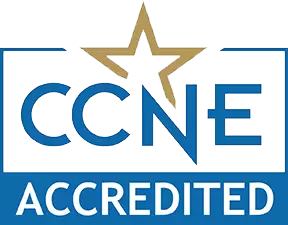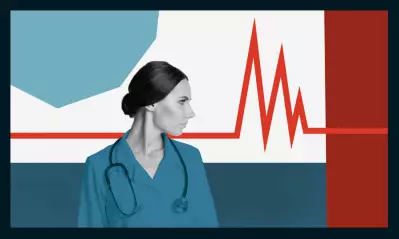Career Guide
Nurse practitioner
Do you want to make a difference by impacting patients’ health outcomes through advanced assessment, diagnostic interpretation, treatment planning and research application? You may be fit for the nurse practitioner career.
Alumna Carmen Bravo
MSN
Do you want to make a difference by impacting patients’ health outcomes through advanced assessment, diagnostic interpretation, treatment planning and research application? You may be fit for the nurse practitioner career.
Career overview
Nurse practitioners are healthcare providers who perform a range of advanced clinical services while managing the broad scope of patient primary care. This may include conducting physical exams and screenings, identifying health conditions, requesting diagnostic tests and lab work and prescribing medication. Nurse practitioner duties can vary by state, the Bureau of Labor Statistics (BLS) reports.
These professionals are also recognized as a type of advanced practice registered nurses (APRN), along with nurse anesthetists and nurse midwives, according to BLS. While some may work independently, they also collaborate with other healthcare professionals, depending on the medical case. Within the nurse practitioner career, you can work within a specialty, such as geriatric, pediatric or psychiatric patient care.
As an alternative, nurse practitioners can deliver acute care to patients. Whereas primary care focuses on holistic and preventative care of patients throughout their lives, acute care prioritizes short-term treatment of severe injuries or illnesses, as well as complex or persistent health conditions. Nurse practitioners administering acute care generally work in intensive or acute care units, emergency departments or specialty clinics.
While each state has its own specific criteria to obtain nurse practitioner certification, at the minimum, you must be a registered nurse (RN) with a graduate degree in nursing specific to a nurse practitioner career, an active RN license and advanced clinical training.
Take your next step
Career-relevant skills
You may need the following knowledge concepts and nurse practitioner skills during day-to-day experience in this role:
- Ethics application
- Policy analysis
- Change management
- Fiscal responsibility
- Health history management
- Advanced assessment
- Synthesis of information for diagnosis
- Diagnosis formulation
- Clinical evidence analysis
- Treatment planning
- Patient education
- Coding
- Advanced health assessment
- Decision making
- Digital fluency
- Clinical decision-making
- Appropriate prescribing
- Holistic care
- Communication in practice
- Diagnostic interpretation
- Office procedures
Additional skills:
- Individualized treatment planning
- Interdisciplinary collaboration
- Scope of practice
- Synthesis for diagnosis
- Plan of care
- Professional collaboration
- Independent practice
- Lawful pharmacological practice
- Diagnosing
- Diverse ethical management
- Preventative care
- Nurse practice act
- Pediatric care
- Parent teaching
- Fiscal care planning
- Proper scope of practice
- Preventive services
- Clinical practice
- Interprofessional communication
- Ethical practice
- Regulatory guidelines
- Primary care
- Lawful prescribing
Soft skills
Regularly used on the job
Some essential soft skills for nurse practitioners include attention to detail, compassion, critical thinking, leadership and resourcefulness.
128,400 jobs
Projected growth (2024-2034)
About 320,400 nurse practitioners were employed in 2024. Job prospects for nurse practitioners are projected to grow by 40% nationally between 2024 and 2034, BLS reports.[2]
[1] For source data, refer to the official BLS Occupational Employment and Wage Statistics table. This information can be found under Nurse Practitioners (29-1171) in the “Annual 25th percentile wage” and “Annual 75th percentile wage” columns.
[2] Salary ranges are not specific to students or graduates of University of Phoenix. Actual outcomes vary based on multiple factors, including prior work experience, geographic location and other factors specific to the individual. University of Phoenix does not guarantee employment, salary level or career advancement. BLS data is geographically based. Information for a specific state/city can be researched on the BLS website. The BLS Projected Growth for 2024-2034 is published by the US Bureau of Labor Statistics. This data reflects the BLS’ projections of national (not local) conditions. These data points are not specific to University of Phoenix students or graduates.
Education and experience
With a faster growing rate than average, according to BLS, this thriving healthcare field may be a fruitful career choice.
Nurse practitioners begin their careers as RNs with a diploma from an approved nursing program or an associate or bachelor’s degree in nursing, BLS reports. You may find a bachelor’s or graduate degree to be beneficial as it can prepare you for nursing-related roles within administration, research, consulting and teaching that may not be available to nurses with an associate degree or nursing diploma. To earn your RN license, you will need to take the National Council Licensure Examination and satisfy additional requirements that vary by state.
It’s not unusual for ambitious, self-directed individuals to desire new professional challenges. Once you are an RN, you can progress into the nurse practitioner career with an appropriately focused master's degree in nursing. While a bachelor's degree is a prerequisite to pursuing a graduate nursing program, it's important to note that your earned degree may not need to be in the same area of study.
There are three pathways of nursing education RNs can take to advance into the nurse practitioner career:
1. If you’re an RN with an associate degree, your first step will be to earn a Bachelor of Science in Nursing. A BSN strengthens skills relevant to your current role and continues your nursing education progress towards a graduate-level program.
2. If you have a bachelor’s degree in nursing, you can apply to a Master of Science in Nursing/Family Nurse Practitioner or Master of Science in Nursing/Psychiatric Mental Health Nurse Practitioner program.
3. If you have a bachelor’s degree in an unrelated field, a nurse bridge program may be the most efficient route to a master’s degree.
At University of Phoenix, we offer master’s programs that lead to the nurse practitioner career outcome. If you don't already have a bachelor's degree, we offer undergraduate programs that can help you qualify for master’s nurse practitioner programs. Our programs allow you to fit education into your busy schedule, taking one course at a time in 5- to 6-week intervals. Learn more about which of these programs — focused on teaching you the skills you’ll need in your career — is right for you.
Master's degrees
Master of Science in Nursing / Family Nurse Practitioner degree
This online family nurse practitioner degree is designed to teach students relevant nurse practitioner skills that will help them provide advanced care to their patients. By enrolling in this program, you will be qualified to take on a more involved role in diagnosing and treating patients, while managing holistic healthcare for individuals and diverse populations across the life span.
In this program, you’ll learn how to:
- Synthesize advanced practice assessment to generate accurate clinical decisions
- Integrate theory and evidence to provide holistic healthcare services to improve or maintain optimum health for all family members
- Manage holistic health care for individuals and diverse populations across the life span
- Integrate ethical principles in delivering care to patients across the lifespan
- Synthesize state Nurse Practice Acts and/or regulatory guidelines to practice lawfully
To earn this degree, you will need to complete 48 credits and a five-day in-person residency. The length of this program is 26 months.
Master of Science in Nursing / Psychiatric Mental Health Nurse Practitioner
Prepare for a role as an advanced practice registered nurse (APRN) specializing in neuropsychiatric care and treatment with an online psychiatric mental health nurse practitioner program.
In this degree program, you’ll learn how to:
- Synthesize advanced practice assessment to generate accurate clinical diagnosis
- Integrate theory and evidence to provide holistic healthcare services to improve or maintain optimum health for all family members
- Manage holistic healthcare for individuals and diverse populations across the life span
- Integrate ethical principles in delivering care to patients across the life span
- Synthesize state Nurse Practice Acts and/or regulatory guidelines to practice lawfully
- Apply principles of quality and safety to improve patient-centered outcomes across the life span
To earn this degree, you will need to complete 52 credits courses in core, program-specific topics and a five-day in-person residency. The length of this program is 28 months.
Additional pathways
Nurse Bridge Program
If you have active RN licensure and a bachelor’s degree in an unrelated field, our Nursing Bridge Program helps experienced nurses like you earn your MSN degree — saving you time and money. You’ll start with three BSN courses and then move into the program specialty that fits your career goals:
- Our Family Nurse Practitioner bridge program requires you to complete 57 credits in bridge and core courses. The length of this program is 29 months.
- Our Psychiatric Mental Health Nurse Practitioner bridge program requires you to complete 61 credits in bridge and core courses. The length of this program is 31 months.

The baccalaureate degree program in nursing, master's degree program in nursing, and Doctor of Nursing Practice program at the University of Phoenix are accredited by the Commission on Collegiate Nursing Education, 655 K Street, NW, Suite 750, Washington, DC 20001, 202-887-6791.
Day in the life of a nurse practitioner
Learn more about the role of a nurse practitioner in this CareerOneStop video.
Day in the life video: Nurse Practitioner
Living her life with purpose
Carmen Bravo rose from the streets of the Imperial Valley to earn her bachelor’s degree, her master’s degree, and a longtime job in nursing. Her degree didn’t just impact her family, it helped her make a difference.
How can University of Phoenix support me in pursuing my career goals?
Students and graduates can access our Career Navigator tools, which can help you evaluate career options, track career-relevant skills and discover job postings suited to your needs. From resumé building and interview preparation to networking and mentorship, University of Phoenix offers career services for life to all students and graduates. Dive deeper into our career services, resources and tools to find out how we can help you reach your goals.


